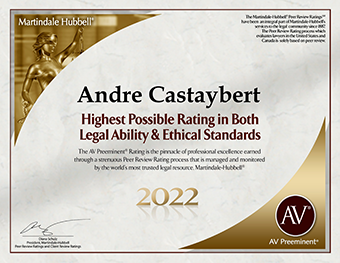SDNY: Embedded Tweet Could Be Copyright Infringement
In a decision that could drastically change the internet as we know it, Judge Katherine Forrest held that a news site’s embedded tweet could be considered an infringing “display” of material under the Copyright Act. Embedding, the process by which a website features—but does not host on its own server—images, videos or tweets originally posted to social media applications and sites, has become ubiquitous and is especially easy through advanced interface applications (“APIs”) created and marketed by companies such as Instagram, Youtube and Twitter.
For over a decade, media and other companies who use embedded material have comfortably relied on precedent established in the Ninth Circuit decision Perfect 10 v. Amazon, in which Google and other defendants were not held liable for displaying images users accessed through links. In that case, the Court determined that sites could only be directly liable if they stored infringing materials on their servers, thereby establishing the “server test.”
In Goldman v. Breitbart, Breitbart was sued for embedding on its site a tweet that featured an allegedly infringing photo of the football player Tom Brady. The news organization moved for summary judgement, claiming that even if the image were infringing, it did not host the photo on its server. The Southern District Judge denied the motion, holding that the server test did not apply. In her opinion, Judge Forrest maintained that the server test should not be extended to news sites, which function differently from search engines, such as Google, in that they do not aid users in “navigat[ing] from wepage to webpage,” but instead merely display embedded content regardless of whether the user “asked for it, looked for it, clicked on it, or not.” In addition to distinguishing the facts of Perfect 10, Judge Forrest asserted a general disfavor of the server test, stating that “mere technical distinctions invisible to the user should not be the linchpin on which copyright liability lies.” That is, even though a site may not technically house infringing material, it still appears to the user and is therefore “displayed” for the purposes of the Copyright Act.
Though the ruling does not preclude Breitbart from establishing fair use or a defense under the Digital Mellenium Copyright Act, it has opened the door to serious uncertainty, especially amongst news and media companies, on whose sites embedded content is pervasive. Various organizations have already come forward to criticize the decision, including the Electronic Frontier Foundation, which called the server test “a foundation of the modern internet.” The question is now whether Judge Forrest’s perspective will be corroborated and adopted by other courts in the Second Circuit.
To learn how Castaybert PLLC can assist with intellectual property law, please click here.









